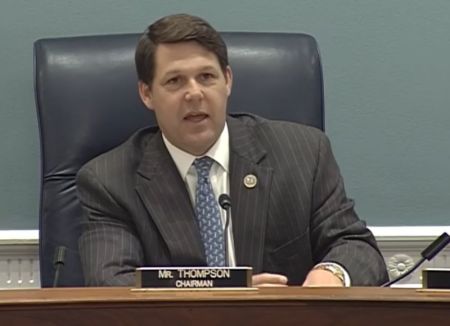Washington Post Corrects Story Saying Congressman Quoted Bible to Argue Unemployed Shouldn't Eat

The Washington Post corrected a story mischaracterizing a Republican Congressman by claiming that he used a New Testament verse to claim the "Bible says the unemployed 'shall not eat'" after conservatives pointed to the false reporting.
Last week, Rep. Jodey Arrington, R-Texas, spoke during the House Agriculture Committee hearing on SNAP benefits and responded to an expert witness who referred to Leviticus to state that the Bible requires people to leave harvest gleanings for the poor.
"I did hear, Mr. Protas, your opening remarks where you quoted Leviticus. I believe, and I think that's a great reflection on the character of God and the compassion of God's heart and how we ought to reflect that compassion in our lives," Arrington said in response, before using 2 Thessalonians to justify having strong work requirements for SNAP.
"But, there's also, the scripture tells us in 2 Thessalonians 3:10: 'For even when we were with you we gave you this rule: If a man will not work, he shall not eat.' And then he goes on to say, 'We hear that some among you are idle.'"
Following Arrington's exchange, The Washington Post published an article written by reporter Caitlin Dewey. According to The Federalist, the orginal headline of the Post article read: "GOP Lawmaker: The Bible says the unemployed 'shall not eat.'"
The Post article read in part:
"One lawmaker is citing a godly reference to justify changes to the Supplemental Nutrition Assistance Program: Rep. Jodey Arrington (R-Tex.) recently quoted the New Testament to question the strength of current work requirements.
The biblical passage, 2 Thessalonians 3-10, was a rebuttal to one of the hearing's expert witnesses, a representative of the Jewish anti-hunger group MAZON. (He referenced Leviticus.) It is also a familiar refrain to anyone who has watched past debates about SNAP.
House Republicans have historically cited the verse — 'if a man will not work, he shall not eat' — as justification for cutting some adults' SNAP benefits. Arrington referenced the verse in a discussion about increasing the work requirements for unemployed adults on the food stamp program. But critics say that advances a pernicious myth about the unemployed who receive SNAP."
The initial version of the Washington Post article never used actual quotes from Arrington's remarks and The Federalist accused Dewey and the Post of misrepresenting the congressman's use of the biblical verse.
"Not only did Arrington not disagree with the witness who quoted passages from Leviticus requiring the Israelites to leave harvest gleanings in the field for sojourners and the poor, Arrington actually affirmed him and noted that the passage in question is 'a great reflection on the character of God and the compassion of God's heart,'" The Federalist's Sean Davis wrote. "At no point did Arrington ever declare that the Bible requires that the unemployed shall not eat. Not once. At no point did Arrington ever say, 'The Bible says the unemployed shall not eat.'"
"Rather, the Texas congressman noted to the witness at his hearing that in addition to commanding God's people to leave a share of their harvest for the needy to pick up and eat as they moved through the fields, the Bible tells Christ's disciples not to allow idleness to make them a burden on their fellow Christians," Davis continued. "Paul's letter to the church in Thessaloniki, after all, was not a directive to government officials in Rome, but an exhortation to his fellow followers of Christ in Greece."
Davis also pointed out the Post's flaw in referring to the Bible verse as "2 Thessalonians 3-10," which had still not been corrected as of Monday afternoon.
Following the publishing of The Federalist piece, the Washington Post made edits to Dewey's article. The Stream's Rachel Stoltzfoos wrote that it "appears the stealth edits are a direct answer to [Davis'] piece." The edits included a quote of Arrington's from the hearing that was added to the text.
The Washington Examiner's Kyle Feldscher also noted on Twitter that the Post's edit "literally answers every criticism" of the piece highlighted by Davis.
"WaPo was forced to rewrite its garbage hit job, still left errors uncorrected, and refused to admit error," Davis wrote on Twitter. "Boy is there egg on my face."





















